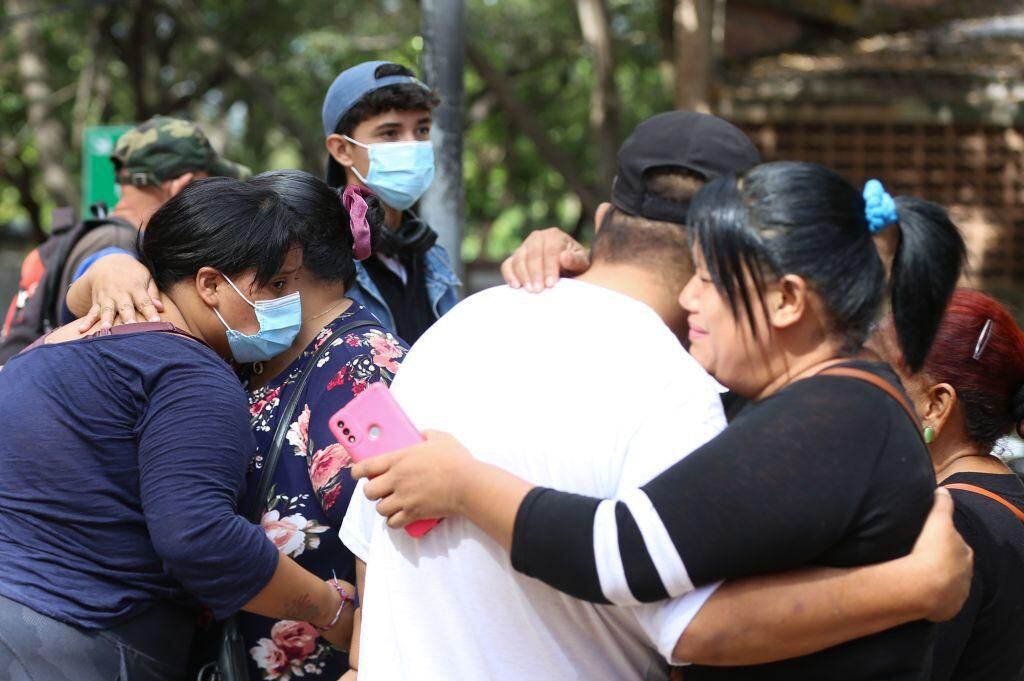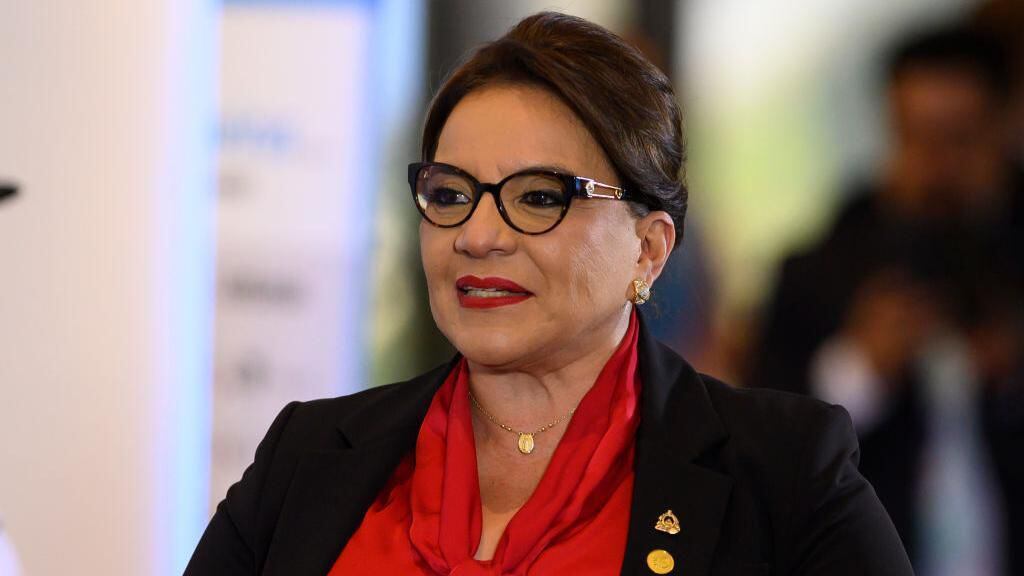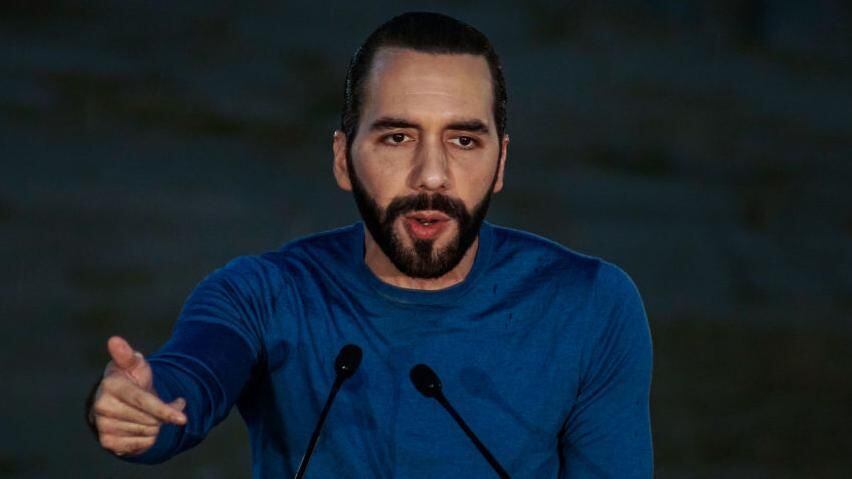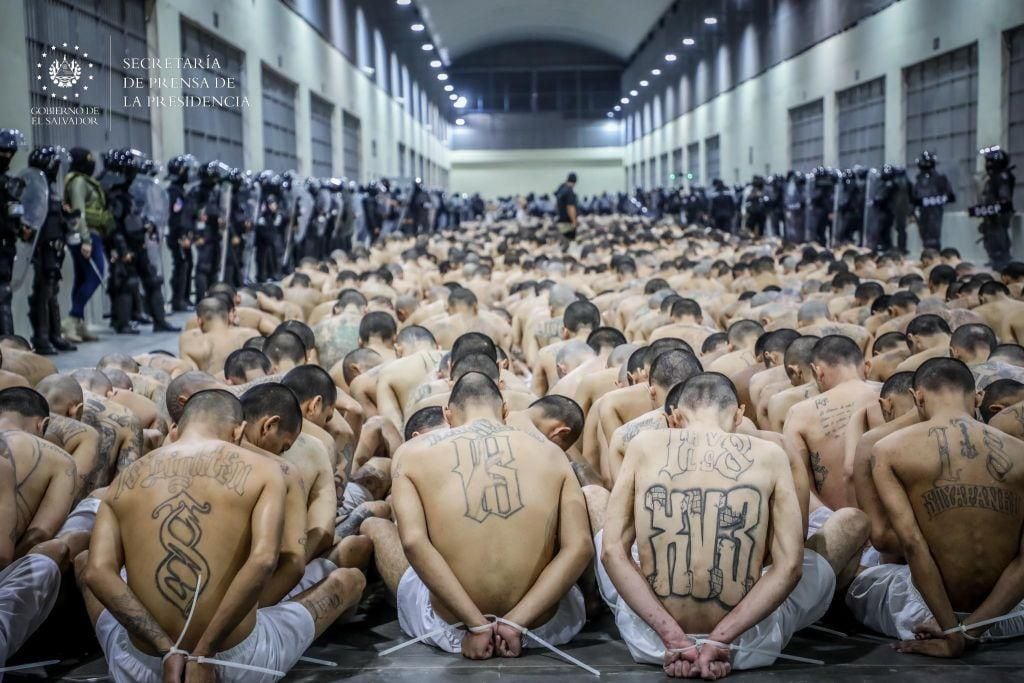As expected, violence is being one of the most complex challenges for the president of HondurasXiomara Castro.
In just 24 hours, 21 people were killed in the country over this weekend. 13 of them were victims of a massacre inside a pool hall in the municipality of Choloma, in northern Honduras.
LOOK: Who was Stockton Rush, the pilot who owned the Titan submersible: “If you want to be safe, don’t get out of bed”
To deal with this serious situation, the president decreed Curfew in Choloma and San Pedro Sulaone of the largest and most important cities in the Central American country.
What is happening in Honduras? What is the new offensive launched by Castro about? And how important is the “Bukele effect” in all this?
Here we tell you.
1. What happened?
On the night of Saturday June 24, 13 people They were murdered in a pool hall located in the Victoria neighborhood, in Choloma, where a birthday party was being held.
According to local police, the massacre occurred after a group of armed men entered the venue and opened fire on the guests.
Added to this brutal attack was the murder of other 8 people in different episodes recorded in just 24 hours in different areas of the north of the country.
Given these events, the president Xiomara Castro decreed a curfew on Sunday from 9:00 p.m. to 4:00 a.m. in the two most affected cities, Choloma and San Pedro Sula, for 15 days that can be extended.
Along with this, Castro also announced a police operation, called “Sula Valley Padlock”, which seeks to control violence in the northern zone and recover the areas taken over by the gangs. The offensive includes rewards for those who facilitate the capture of the perpetrators of the crimes.
“I have taken measures to give them security from the brutal and ruthless terrorist attack to which they are subjected by the hired thugs trained and directed by the leaders of drug trafficking that operates with impunity”, Said the president on her Twitter account.
“Multiple operations, raids, captures, and checkpoints begin 24 hours a day,” he added.
1/4. Sps and Choloma: I have taken measures to give them security in the face of the brutal and ruthless terrorist attack to which they are subjected by hired thugs trained and directed by the drug lords who operate with impunity in the drug corridor; sula valley.
— Xiomara Castro de Zelaya (@XiomaraCastroZ) June 25, 2023
The new measures come just five days after 46 inmates burned and shot to death in a riot between, supposedly, members of rival gangs -Barrio 18 and Mara Salvatrucha-, in a prison near Tegucigalpa, the capital of Honduras.

2. It is not an isolated event
The wave of violence that hits the Honduran population is not recent.
The latest measures imposed by the government to deal with crime add to a controversial and extensive Exception status which has been in force in more than half of the Honduran territory since December 6 of last year.
The measure was extended three times – the last on May 21, when it was extended by other 45 days-, causing a call for attention from the United Nations, which asked to avoid its “prolonged use”.
The Washington Office on Latin American Affairss (WOLA, for its acronym in English) has insisted that this regime suspends constitutional rights such as freedom of movement, the right of association and assembly, and the inviolability of the home, so its nature must be temporary.
However, according to the authorities, the state of emergency has allowed identify and capture gang members who profit from other crimes such as arms and drug trafficking, vehicle theft, femicides and money laundering.

Today the country is experiencing a “somewhat contradictory phenomenon,” he tells BBC Mundo Eugenio Sosasociologist at the National Institute of Statistics of Honduras.
This is because, although murders have decreased – in 2022 there was a rate of 35 homicides per 100,000 inhabitants, the lowest in 16 years – the killings have increased.
“Massacres have increased. Behind them there are organized crime structures that have penetrated the country to the bottom”, says Sosa.
An example of the above is, precisely, the death of the 46 inmates in the prison on June 20.
After the dramatic episode, the government announced that the military police will assume control of the 21 prisons in Honduras for a period of one year from July 1.
Eugenio Sosa says that, faced with this, the “critical point of debate” is whether the military will succeed or fail to control the situation.
“The military generates a sense of security but, in a long-term perspective, it is questionable,” he says.
A similar look has Leonardo PinedaHonduran social analyst and researcher, who assures that militarizing security has already been done in previous periods with ineffective results.
“It is quite proven that militarizing prisons and security in general not the most effective. In addition, the military police have been reported for violations of human rights,” he told BBC Mundo.
3. How important is the “Bukele effect”?
El Salvador and Honduras share a border and challenges.
Historically they have had some of the highest murder rates in the world and their inhabitants have suffered for years from endemic insecurity.

El Salvador, under the presidency of Nayib Bukelehas been under an emergency regime for more than a year, questioned by human rights organizations but applauded by the majority of Salvadorans for reducing crime and homicides, according to government data.
Bukele’s popularity also reaches broad Honduran sectors that look favorably on how the neighboring president is leading the war against the gangs.
“Bukele is highly valued in Honduran society and there are broad sectors of the citizenry that clamor for leadership like Bukele’s in the country. That he put order, that he impose himself, that the criminals fear him, ”explains Sosa.
One of the consequences of the above is that the Castro government would have been under pressure to generate measures in line with those of Bukele.
“It puts pressure on the rulers that, seeing that some things work in the neighboring country, they have the motivation to develop aspects similar to Bukele’s model”, Sosa points out.

The urgency is even stronger if one considers that Bukele’s heavy hand is causing a migration of gang members from El Salvador to other countries in the region. And Honduras is no exception.
“As a result of persecution and imprisonment in El Salvador, some gangs have managed to move and are carrying out criminal activities in Honduras,” says Sosa.
But trying to imitate in Honduras the actions seen in El Salvador is not easy nor does it guarantee success by itself.
“Trying to emulate what Bukele is doing is more a propaganda campaign than something that is really going to give results,” says Pienda.
“El Salvador is much smaller than Honduras. They have five police officers for every 1,000 inhabitants, we have only 1.8 for every 1,000 inhabitants. So the interventions cannot be done in the same way. In addition, our prisons are overwhelmed, ”he adds.
On the other hand, the “Bukele model” has been criticized for the absence of a plan for the future, beyond the emergency measures.
Thus, analysts consulted by BBC Mundo assure that the great challenge in Honduras is to attack crime at the root.
For them, measures such as the curfew or the state of emergency will only work if deeper policies such as the fight against corruption, the reduction of inequality and poverty, and the recomposition of institutions.
fernanda paul
BBC News World
Source: Elcomercio
I am Jack Morton and I work in 24 News Recorder. I mostly cover world news and I have also authored 24 news recorder. I find this work highly interesting and it allows me to keep up with current events happening around the world.

:quality(75)/cloudfront-us-east-1.images.arcpublishing.com/elcomercio/TV4BR3CBHBA73O75C6XKPTOOLY.jpg)



:quality(75)/cloudfront-us-east-1.images.arcpublishing.com/elcomercio/I2453I3SEVHKTG7TCB6QDBOX2I.jpg)

